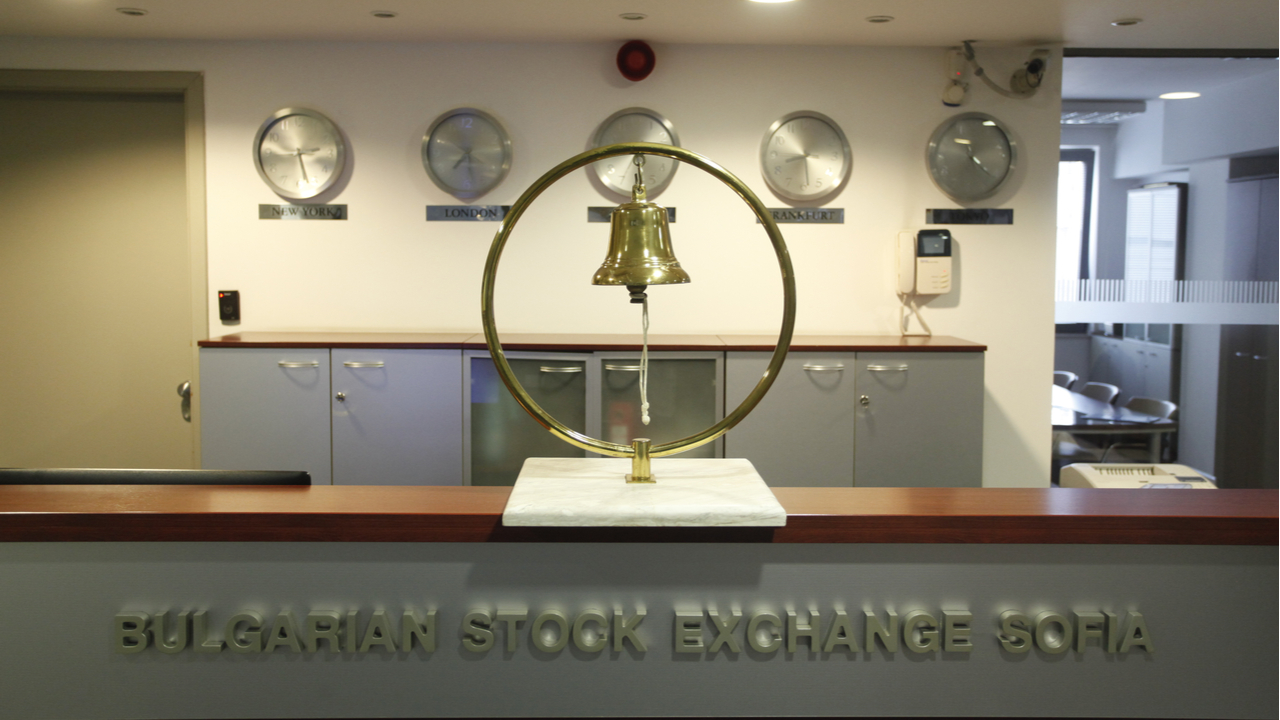 Hong Kong’s first crypto-based exchange-traded funds (ETFs) have attracted over $73 million ahead of their debut on the region’s stock exchange. The launch of the two ETFs tracking cryptocurrency futures listed in the United States comes despite the industry’s current troubles. Hong Kong Debuts Bitcoin and Ether Futures ETFs Amid Crypto Winter Two ETFs tracking […]
Hong Kong’s first crypto-based exchange-traded funds (ETFs) have attracted over $73 million ahead of their debut on the region’s stock exchange. The launch of the two ETFs tracking cryptocurrency futures listed in the United States comes despite the industry’s current troubles. Hong Kong Debuts Bitcoin and Ether Futures ETFs Amid Crypto Winter Two ETFs tracking […]
The 2022 bear market is impacting BTC miners in more extreme ways than previous downturns, especially with so many publicly listed miners struggling with their debt obligations.
Bitcoin (BTC) mining is the backbone of the BTC ecosystem and miners’ returns also provide insight into BTC’s price movements and the health of the wider crypto sector.
It is well-documented that Bitcoin miners are struggling in the current bear market. Blockstream, a leading Bitcoin miner recently raised funds at a 70% discount.
Current mining activity shares similarities to historic BTC bear markets with a few caveats.
Let’s explore what this means for the current Bitcoin cycle.
Bitcoin mining profitability can be measured by taking the miner’s revenue per kilowatt hour (kWh). According to Jaran Mellerud, a Bitcoin analyst for Hashrate Index, a BTC mining bear market has a sustained period of revenue per kWh of less than $0.25. Under his assumption, he calculates using the most efficient Bitcoin mining machine on the market.
The 2018 bear market lasted nearly a year, sending kWh to a bottom of $0.12. Following the downtrend, a short bull market commenced until the 2019 bear market began.
According to Mellerud, the 2019 bear market produced all-time low revenue per kWh of $0.083 and lasted 463 days, while Bitcoin price dropped to $5,000.
The most recent mining bear market started in April 2022 according to Mellerud’s analysis of revenue per kWh. As of Dec. 8, the current bear market has lasted for 225 days with a minimum revenue of $0.108 per kWh. The number is higher than in previous bear cycles due to high energy prices.

Comparing the current bear mining cycles, a minimum of 138 bear market days may continue before the market turns. The difference between this period and past cycles is that previously, miners were mainly self-funded whereas now, there are many miners that funded their rapid growth with debt.
At its peak, Bitcoin mining stocks reached a cumulative value of over $17 billion in the 2021 bull market. The bull market increased investor interest and spurred growth in BTC mining stocks skyrocketed from $2 billion in Nov. 2020.
After reaching the bull market peak in 2021, crypto mining stocks are under immense pressure, with many falling by 90%.

The immense amount of debt taken on by public mining firms taken at Bitcoin’s all-time high is creating a massive debt-to-equity ratio.
Mirror, mirror on the wall, who are the strongest public #bitcoin miners of them all? pic.twitter.com/pnpypsxcAu
— Jaran Mellerud (@JMellerud) December 5, 2022
A great example of how the bear market is increasing miners’ reliance on debt, is to look at Core Scientific. Before the mining bear market in April, Core Scientific had a mere 0.6 debt-to-equity ratio. Since the start of the bear market, that number has grown to over 24.2 debt-to-equity.

With the Bitcoin mining bear market expected to continue based on past historic BTC trends, more public miners will face equity squeezes. As miner debt continues to grow, investors may get spooked, creating even more depressed prices in the stock market.
The views, thoughts and opinions expressed here are the authors’ alone and do not necessarily reflect or represent the views and opinions of Cointelegraph.

The second-largest stock exchange in the world is reportedly going to offer crypto custody services to institutional investors. According to a new report by Bloomberg, Nasdaq, the world famous New York-based stock exchange, is going to offer Bitcoin (BTC) and Ethereum (ETH) to blue-chip investors, with plans to expand. The report says Nasdaq has hired […]
The post Nasdaq To Offer Institutional Crypto Custody Service With Plans for Expansion: Report appeared first on The Daily Hodl.
 According to statements made by the digital asset custody business and financial services provider Bitgo, the firm has filed a lawsuit against the crypto company Galaxy Digital and is seeking damages for more than $100 million. Bitgo says Galaxy’s “improper repudiation and intentional breach of its merger agreement” caused the lawsuit. Bitgo Seeks Damages From […]
According to statements made by the digital asset custody business and financial services provider Bitgo, the firm has filed a lawsuit against the crypto company Galaxy Digital and is seeking damages for more than $100 million. Bitgo says Galaxy’s “improper repudiation and intentional breach of its merger agreement” caused the lawsuit. Bitgo Seeks Damages From […] Galaxy Digital Holdings and the company’s CEO and founder Mike Novogratz announced the company has “exercised its right to terminate” a previously announced acquisition of Bitgo. According to Galaxy the termination of the deal was due to Bitgo’s “failure to deliver” audited financial statements for 2021. Galaxy Ends Deal With the Crypto Custodian Bitgo On […]
Galaxy Digital Holdings and the company’s CEO and founder Mike Novogratz announced the company has “exercised its right to terminate” a previously announced acquisition of Bitgo. According to Galaxy the termination of the deal was due to Bitgo’s “failure to deliver” audited financial statements for 2021. Galaxy Ends Deal With the Crypto Custodian Bitgo On […]
The closing of the exchange, along with a plunging ruble, may have a devastating impact on the lives of ordinary Russian citizens.
As reported by local news outlet tass.ru, the Central Bank of Russia once again suspended trading on the nation's leading Moscow Stock Exchange (MOEX) on Wednesday, and will not open the exchange on Thursday. Trading on the MOEX has been halted since Feb. 25, after Russia launched its ongoing military occupation of Ukraine. On a monthly basis, the exchange's index has lost over 34% of its value (not adjusted for inflation), as Western leaders imposed crippling sanctions on Russia in response to the conflict.
In addition, MOEX's main website has been knocked offline since Monday, with Ukraine's IT Army allegedly taking credit for the "hack." Meanwhile, Russia's Saint Petersburg Stock Exchange (SPB) also remains closed but will open for limited trading tomorrow. In the meantime, the Dow Jones Russia GDR Index, which tracks the value of Russian stocks listed on the London Stock Exchange, has lost 93% of its value in the last five trading days, implying disastrous losses ahead when Russian markets open.
Theoretically, whether centralized or decentralized exchanges (CEXs or DEXs), cryptocurrency exchanges would be free from such intervention. In addition to their sheer numbers, CEX servers can be spread out worldwide or do not disclose their server locations. Governments can, therefore, ban exchanges within their borders but cannot enforce a ban on crypto trading. As for DEXs, their peer-to-peer nature typically enables anyone with an internet connection to link their wallets and swap crypto, making it difficult to enforce any type of ban altogether.
While Russian financial institutions have the means to weather a stock market catastrophe, the same cannot be said for everyday Russians. More than 17 million retail investors trade on the MOEX alone, and together, retail investors account for more than 40% of the country's equity trading volume. Coupled with a sharp decline in the ruble's value, it is likely the retail investor community in Russia, such as that of pensioners and retirees, will suffer severe losses to their savings when markets open.
But perhaps there is no better path to understanding the dangers of centralized control over capital markets than through the archives of the SPB, itself. During the imperial era, the SPB was one of the top-performing stock markets in the entire world, even besting the performance of the New York Stock Exchange for much of the latter half of the 19th century. However, trading on the SPB halted with the outbreak of World War I. They opened briefly after the outbreak of the Russian Revolution in 1917. But when the Bolsheviks took over, the SPB was closed down for good, with investors who couldn't sell in time losing every single kopek (Russian penny).

Russian equity index of the 1900s | Source: SNB & CHF (Author's note: The "spike" in 1917 resulted from hyperinflation during the Russian Revolution, where stock prices "went up" simply due to the printing of large-denomination ruble notes, in part, to fund military expenditures. Meanwhile, their "real" value as compared to foreign currencies, plunged)
 Bulgarians can now invest in crypto assets through their country’s stock market. The Bulgarian Stock Exchange has recently launched eight ETNs based on two digital currencies, bitcoin and ethereum, following the example set by leading European platforms that support such products. Crypto-Based ETNs Offered to Bulgarian Investors Bulgarian Stock Exchange (BSE) has started trading crypto […]
Bulgarians can now invest in crypto assets through their country’s stock market. The Bulgarian Stock Exchange has recently launched eight ETNs based on two digital currencies, bitcoin and ethereum, following the example set by leading European platforms that support such products. Crypto-Based ETNs Offered to Bulgarian Investors Bulgarian Stock Exchange (BSE) has started trading crypto […] Russian banking giant Sberbank has presented the country’s first exchange-traded fund (ETF) giving investors access to the blockchain space. The new instrument holds securities of companies dealing with cryptocurrencies and the technologies that underpin them. Sberbank Introduces ETF Tracking Blockchain Economy Index The largest banking and financial services provider in Russia and the post-Soviet space, […]
Russian banking giant Sberbank has presented the country’s first exchange-traded fund (ETF) giving investors access to the blockchain space. The new instrument holds securities of companies dealing with cryptocurrencies and the technologies that underpin them. Sberbank Introduces ETF Tracking Blockchain Economy Index The largest banking and financial services provider in Russia and the post-Soviet space, […] The stock exchange of Gibraltar, a British territory, has received a purchase offer by a blockchain firm called Valereum. The purchase, that is set to occur in the new year, if effective, might make the Gibraltar Stock Exchange the first bourse where cryptocurrencies and stocks could be traded with cryptocurrencies. Regulators are currently reviewing this […]
The stock exchange of Gibraltar, a British territory, has received a purchase offer by a blockchain firm called Valereum. The purchase, that is set to occur in the new year, if effective, might make the Gibraltar Stock Exchange the first bourse where cryptocurrencies and stocks could be traded with cryptocurrencies. Regulators are currently reviewing this […] The director of Tehran’s Stock Exchange has resigned from his post following the discovery of cryptocurrency mining rigs in his organization’s basement. The scandal has erupted as licensed crypto miners in Iran are reportedly resuming operations amid fears of new restrictions in the winter. Iran Stock Exchange CEO Loses Job for Illegal Crypto Mining Under […]
The director of Tehran’s Stock Exchange has resigned from his post following the discovery of cryptocurrency mining rigs in his organization’s basement. The scandal has erupted as licensed crypto miners in Iran are reportedly resuming operations amid fears of new restrictions in the winter. Iran Stock Exchange CEO Loses Job for Illegal Crypto Mining Under […]